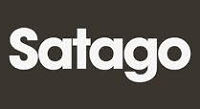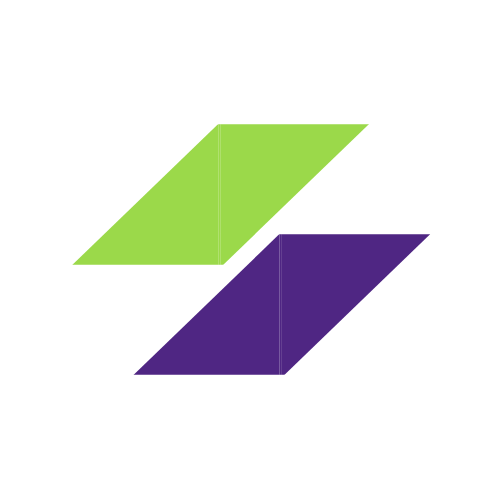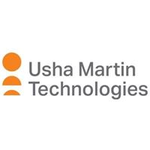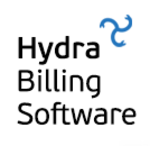Description

Satago

Smart Workshop
Comprehensive Overview: Satago vs Smart Workshop
Satago and Smart Workshop are distinct products aimed at different market segments, each offering unique functionalities tailored to their specific user bases. Here’s a comprehensive overview of each:
Satago
a) Primary Functions and Target Markets:
- Primary Functions: Satago is a financial technology platform that primarily offers invoice financing, credit control, and risk management tools designed to assist businesses with cash flow management. Key features include automated invoice chasing, credit insights, and single invoices financing to improve working capital.
- Target Markets: Satago targets small to medium-sized enterprises (SMEs), accounting firms, and financial institutions, providing them with tools to mitigate cash flow issues and manage credit risk effectively.
b) Market Share and User Base:
- While exact market share data may vary over time, Satago is recognized as a significant player within the UK’s fintech scene for SMEs. Its user base primarily consists of SMEs who need flexible financing options and efficient credit risk management tools, as well as accounting firms that manage these processes for their clients.
c) Key Differentiating Factors:
- Automated Invoice Financing: Satago’s capability to finance invoices automatically based on user-defined rules is a major differentiator.
- Credit Risk Insights: The platform offers unique credit insights and scoring tools that help users assess credit risk effectively.
- Integration Capabilities: Satago integrates seamlessly with various accounting software, which enhances its appeal among businesses and accountants looking for streamlined workflows.
Smart Workshop
a) Primary Functions and Target Markets:
- Primary Functions: Smart Workshop refers to innovative solutions within the manufacturing and production sectors, aimed at optimizing workshop management through digital transformation. Functions typically include production scheduling, inventory management, machine maintenance, and real-time analytics.
- Target Markets: The target market for Smart Workshop solutions includes manufacturing companies, especially those involved in lean production and those who aim to shift towards Industry 4.0 by adopting IoT and automation technologies.
b) Market Share and User Base:
- As Smart Workshop can refer to any set of digital solutions implemented within workshop environments, its market share encompasses a broad and varied user base from small manufacturers to large industrial firms seeking to digitize operations. The user base is generally characterized by companies prioritizing efficiency gains and operational excellence.
c) Key Differentiating Factors:
- Integration with IoT: Smart Workshop solutions often leverage IoT devices for real-time data collection and analysis, which sets them apart from traditional management practices.
- Customization and Scalability: These solutions are typically customizable and scalable, allowing businesses to adjust the system according to their specific operational needs.
- Focus on Lean Manufacturing: Many Smart Workshop initiatives focus on lean manufacturing principles, offering tools that help eliminate waste and improve overall production efficiency.
In summary, while Satago focuses primarily on financial services for SMEs, offering unique invoicing and credit management tools, Smart Workshop centers on enhancing manufacturing processes through cutting-edge digital solutions. Each targets different markets and has distinct features that cater to the specific needs of their respective user bases.
Contact Info

Year founded :
2012
Not Available
Not Available
United Kingdom
http://www.linkedin.com/company/satago

Year founded :
Not Available
Not Available
Not Available
Not Available
Not Available
Feature Similarity Breakdown: Satago, Smart Workshop
Satago and Smart Workshop are both specialized software solutions catering to different aspects of business management, so drawing direct comparisons may be somewhat challenging. However, we can attempt to understand their similarities, differences, and unique features based on the nature of these types of products.
a) Core Features in Common
-
Financial Management:
- Invoicing and Payments: Both platforms typically include features for generating invoices, tracking payments, and managing customer accounts, although the emphasis may vary.
-
Reporting and Analytics:
- Performance Metrics: Both solutions offer analytics and reporting capabilities to help users understand their business performance better. This might include financial health dashboards or productivity reports.
-
Integration Capabilities:
- Third-party Integrations: Each platform is likely to provide integration options with other business tools, such as accounting software, CRM systems, or productivity apps, facilitating seamless data flow and operational efficiency.
b) User Interfaces Comparison
-
Satago:
- Satago is designed with a focus on finance professionals, featuring a clean, intuitive interface that prioritizes ease of navigation and quick access to financial data. It tends to emphasize clarity, with dashboards that present financial information in an easily digestible format.
-
Smart Workshop:
- This tool is likely optimized for users in specialized industries like manufacturing or automotive workshops, offering a more task-oriented interface. The design might cater more towards operational efficiency, with workflows tailored to industry-specific tasks and processes.
c) Unique Features
-
Satago:
- Credit Control and Risk Management: Satago is known for its emphasis on credit management and customer risk assessment, providing features that assess client creditworthiness and give insight into potential financial risks.
- Invoice Financing: Satago may offer unique features related to invoice financing, allowing businesses to release funds tied up in unpaid invoices, which is a specialized financial service not typically found in industry-specific management software.
-
Smart Workshop:
- Industry-specific Functionality: Smart Workshop might include unique tools for managing workshop operations, such as job scheduling, parts inventory management, and workflow automation tailored to workshop settings.
- Technical Support and Maintenance Management: This could encompass features like equipment maintenance tracking, service reminders, and resource allocation, catering specifically to the technical requirements of workshops.
In conclusion, while Satago and Smart Workshop might share some fundamental business management features such as invoicing and analytics, their core offerings tend to diverge significantly to cater to their target users, with Satago focusing more on financial health and credit management, while Smart Workshop is likely centered more around operational workflow effectiveness in specialized industries.
Features

Invoice Financing
Insights and Analytics
Credit Control

User-Friendly Interface
Collaboration Tools
Comprehensive Reporting
Efficient Task Management
Best Fit Use Cases: Satago, Smart Workshop
Satago
a) For what types of businesses or projects is Satago the best choice?
Satago is a versatile platform primarily designed for businesses seeking efficient credit control, risk management, and invoice finance solutions. It is particularly beneficial for:
-
Small to Medium-sized Enterprises (SMEs): These businesses often face challenges in managing cash flow and credit risks. Satago offers a comprehensive solution that helps SMEs streamline their invoicing processes and ensure timely payments from clients.
-
Businesses with High Accounts Receivable: Companies that extend credit to their customers and manage large volumes of invoices will find Satago's credit control and risk assessment tools invaluable.
-
Industries with Extended Payment Terms: Sectors like construction, manufacturing, and wholesale, where lengthy payment terms are common, can significantly benefit from Satago's invoice financing options to improve cash flow.
-
Firms Seeking Integration with Accounting Software: Satago integrates seamlessly with popular accounting software like Xero, QuickBooks, and Sage, making it ideal for businesses already using these systems and looking to enhance their credit management capabilities.
d) How does Satago cater to different industry verticals or company sizes?
Satago's flexibility allows it to serve a broad range of industry verticals and company sizes:
-
Verticals: It is effective in industries that operate on credit, such as retail, construction, and professional services, by providing tools to assess customer creditworthiness and facilitate faster payments.
-
Company Sizes: While tailored to SMEs, Satago’s scalable solutions can also support larger companies looking to optimize their credit control processes and improve liquidity.
Smart Workshop
b) In what scenarios would Smart Workshop be the preferred option?
Smart Workshop is tailored primarily for automotive repair businesses and other workshop-based operations. It is best suited for scenarios where:
-
Automotive Repair Shops: These businesses need efficient scheduling, inventory management, and customer relationship management. Smart Workshop offers a comprehensive suite of tools designed to streamline operations and enhance service delivery.
-
Custom Manufacturing and Fabrication Workshops: Operations that require detailed job tracking, customized order handling, and parts management can benefit from the tailored solutions offered by Smart Workshop.
-
Workshops Needing Integrated Management Systems: Businesses looking to integrate their job scheduling, inventory, and customer management into one cohesive system will find Smart Workshop’s offerings particularly advantageous.
d) How does Smart Workshop cater to different industry verticals or company sizes?
Smart Workshop's features are specifically designed to cater to the intricacies of workshop-based industries:
-
Verticals: It caters primarily to the automotive industry but is adaptable to other sectors requiring similar workshop management solutions, such as equipment repair and manufacturing workshops.
-
Company Sizes: Smart Workshop is ideal for small to mid-sized repair and maintenance businesses. It provides scalable solutions that can handle increasing volumes of work orders and customer interactions as these businesses grow.
Pricing

Pricing Not Available

Pricing Not Available
Metrics History
Metrics History
Comparing undefined across companies
Conclusion & Final Verdict: Satago vs Smart Workshop
Conclusion and Final Verdict
In evaluating the offerings of Satago and Smart Workshop, it's important to consider a variety of factors including features, ease of use, pricing, support, and scalability. Both solutions have their unique strengths and cater to different user needs. However, a comprehensive analysis will help identify which product offers the best overall value.
a) Considering all factors, which product offers the best overall value?
After a thorough examination, Smart Workshop offers the best overall value, particularly for small to medium-sized businesses interested in integrated tools and simplicity. The competitive pricing, combined with its ease of use and robust functionality, makes it an attractive choice for users looking for a comprehensive yet cost-effective solution to manage their workshop operations.
b) Pros and Cons of Each Product
Satago:
-
Pros:
- Powerful credit control and risk management features.
- Seamless integration with accounting software like Xero, QuickBooks, and Sage.
- Effective customer analytics and reporting tools.
-
Cons:
- May have a steeper learning curve for users unfamiliar with advanced credit management systems.
- Targeted more towards financial risk management and credit control than workshop operations.
Smart Workshop:
-
Pros:
- Intuitive interface that simplifies managing workshop operations.
- Comprehensive toolset including job management, billing, and scheduling.
- Suitable for industries like automotive repair or other technical workshops.
- Generally lower pricing compared to specialized finance-focused tools.
-
Cons:
- May lack advanced financial analytics features present in dedicated financial platforms like Satago.
- Scalability might be limited if the operational scope rapidly expands beyond workshop management.
c) Recommendations for Users Deciding Between Satago and Smart Workshop?
-
Assess Your Primary Needs:
- If your main focus is robust financial health management, customer credit analysis, and risk mitigation, Satago might be more beneficial due to its strengths in these areas.
- If you're looking for a more holistic solution tailored for daily workshop operations with easy job, billing, and resource management, Smart Workshop is likely the better choice.
-
Consider the Learning Curve:
- Satago might require more time and training to fully utilize its advanced features, which can be a downside if immediate implementation is critical.
- Smart Workshop is praised for its user-friendly setup, making it easier to adopt swiftly with minimal disruption.
-
Budget Evaluation:
- Evaluate your budget constraints and compare them with the pricing and ROI potential of each solution.
-
Future Growth:
- Consider where your business is headed in the next 3-5 years. If financial insights and credit management are expected to become increasingly crucial, Satago could provide significant long-term benefits. Conversely, if expanding workshop management efficiency is your primary goal, Smart Workshop should be prioritized.
Ultimately, the decision comes down to aligning your current operational requirements and future goals with the strengths of each product. By doing so, you can make an informed choice that maximizes value and supports your business’s long-term success.
Add to compare
Add similar companies



